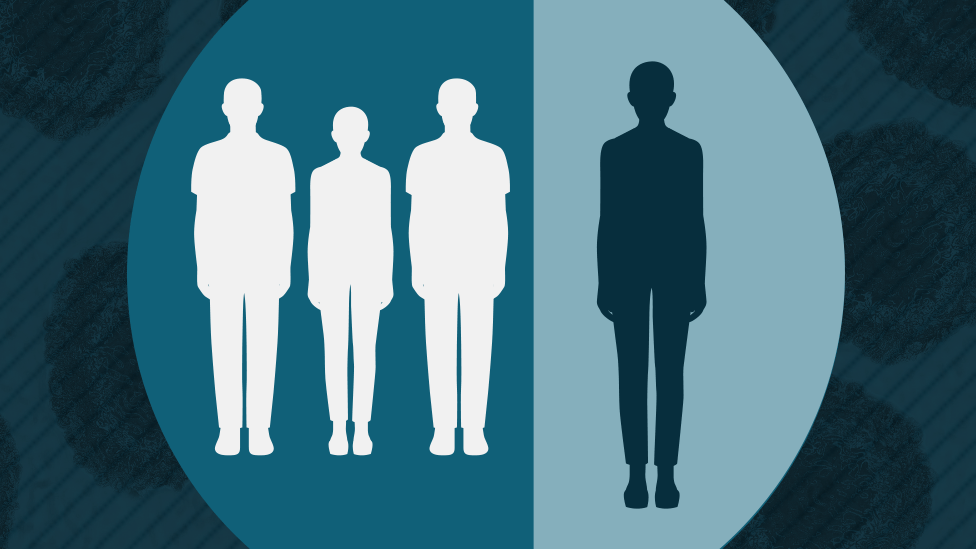Covid: Cases hit new record as booster drive continues
- Published
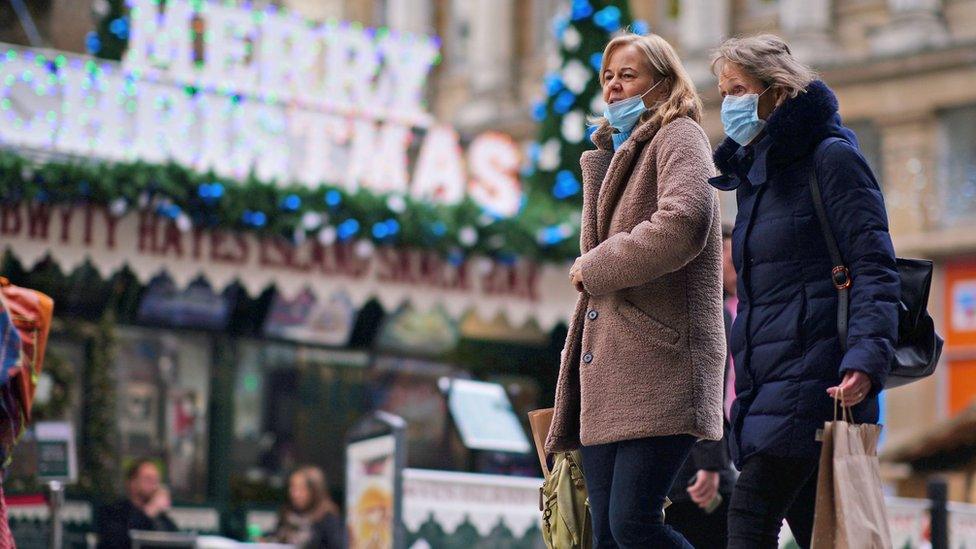
A record number of daily coronavirus cases have been reported across the UK for the second day running, with 88,376 infections confirmed on Thursday.
England's chief medical officer, Prof Chris Whitty, said the Omicron variant could rise "incredibly fast", but its peak subside quickly due to boosters.
There was also a record for top-up vaccines with 745,183 third or booster doses being given on Wednesday.
Boris Johnson has urged people to use "caution" in the face of the variant.
But the prime minister insisted England was not being put into lockdown by stealth, after some of his own MPs had accused the government of putting hospitality under an "effective lockdown".
Meanwhile, the Queen has cancelled her traditional pre-Christmas lunch as a precautionary measure amid the surge of the Omicron variant.
And Wales has introduced a two-stage plan in response to coronavirus with guidance - such as taking a lateral flow test ahead of socialising - for the Christmas period before legal restrictions come into force on 27 December.
These will include all nightclubs closing, 2m social distancing in offices and other measures to protect customers and staff.
A further 146 deaths within 28 days of a positive test were reported on Thursday across the UK.
Daily cases were up from 78,610 on Wednesday, itself a record, and more than 30,000 up on last Thursday when 50,867 infections were reported.
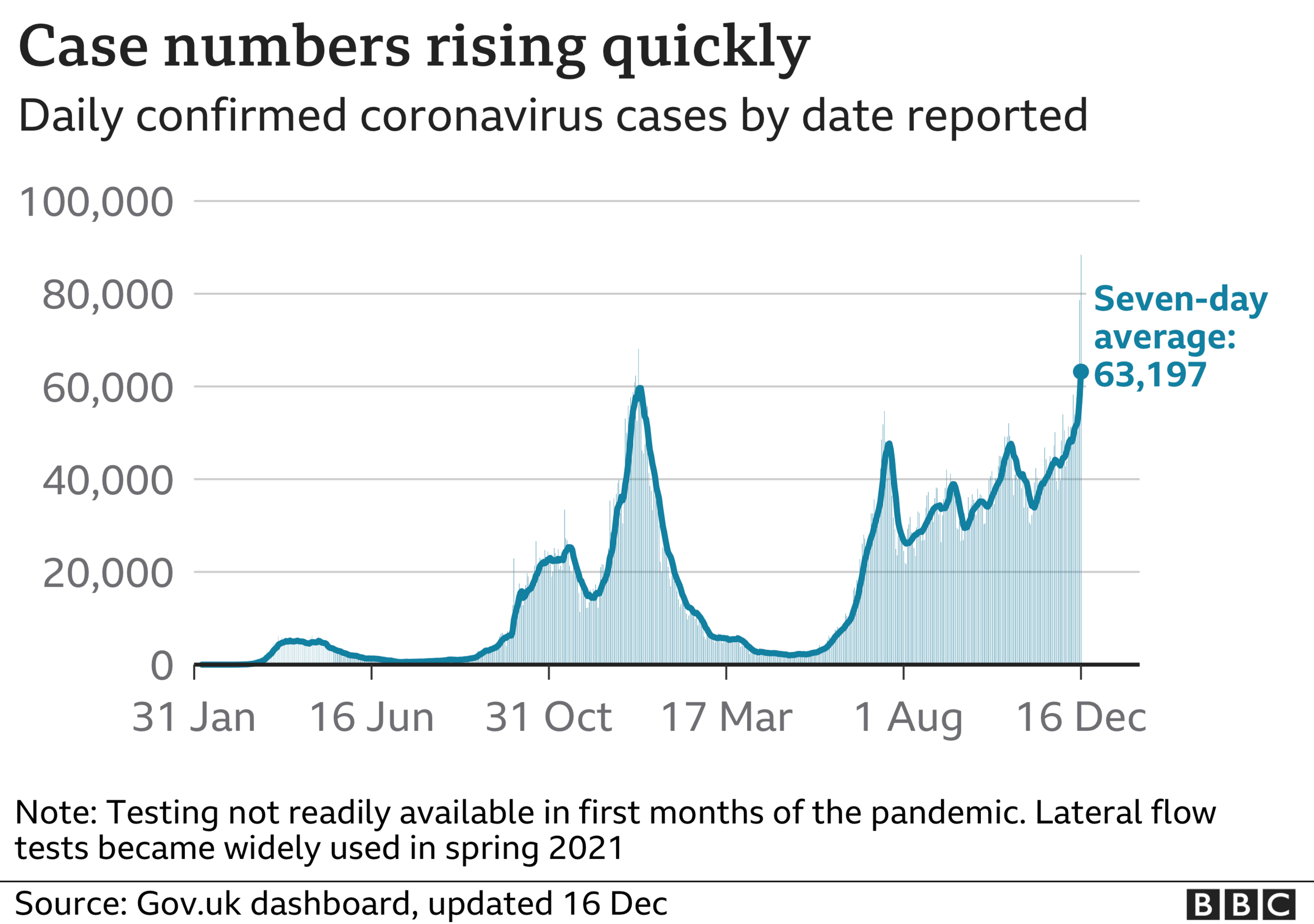
Prof Whitty said the peak of the Omicron wave may fall faster than previous Covid-19 peaks, although he said the upswing will be "incredibly fast".
But he added that this was just a possibility, adding that the rate of growth would slow down once people had received booster vaccines or been infected by the variant.
Speaking to the Commons Health and Social Care Committee on Thursday, he said that even with people acting cautiously the rise in Omicron cases would still be "very fast".
But the booster programme was the route back to a "more normal track", Prof Whitty said.
Plan B measures and "really critically the booster programme" were intended to slow things down, he said, but he added that "if the facts change and it becomes clearer that things are heading the wrong way, ministers are always going to take constant reviews of this".
Prof Whitty said if vaccines were less effective than expected against Omicron then that would be a "material change" in how ministers viewed risks going forward.
He also said it is likely that vaccines and antiviral drugs will do "almost all of the heavy lifting" when it comes to tackling future Covid variants.
Prof Whitty said "each six months will be better than the last six months" when it comes to fighting Covid.
UK Health Security Agency (UKHSA) chief medical adviser Dr Susan Hopkins told MPs that there were now 15 people in hospital with the Omicron variant, but Prof Whitty said the real number will be much greater.
Dr Hopkins said that the earliest there would be reliable data on Omicron would be in the week between Christmas and New Year, with around 250 people with confirmed Omicron needed in hospital for a full study on severity.

LOOK-UP TOOL: How many cases in your area?
RESTRICTIONS: What are the new Covid rules across the UK?
VACCINES: How do I book my vaccine booster?
OMICRON: Do vaccines work against Omicron?

In other developments:
Interest rates have risen for the first time in three years despite fears Omicron could slow the economy
Chancellor Rishi Sunak is cutting short a trip to the US for talks with businesses concerned about the impact of Omicron
Pregnant women have been added to the UK's priority list for a Covid vaccine
France has tightened its Covid restrictions for travellers arriving from the UK in response to rising case numbers
In Scotland, Nicola Sturgeon has warned that further restrictions on "high risk" sectors may be unavoidable
The Welsh government cabinet has been meeting to consider what measures it will take in response to the spread of Omicron
UK schools say they are prepared to switch to online learning next term if they have to in response to the rising cases
An at-home treatment for Covid has been given to UK patients as part of a major study
Four more Premier League football matches have been cancelled because of Covid.
The hospitality sector has called for support from government after suffering amid the rise in Covid cases, with fears about Omicron leading to bookings being cancelled.
Chancellor Rishi Sunak acknowledged it was a "difficult time" for hospitality but said the situation was "very different to what we've done and encountered before", adding that the government was not telling people to cancel things or closing down businesses.
The prime minister said he was not telling the public to cancel events but Prof Whitty had suggested people should "prioritise" activities in the run up to Christmas.
Labour has called for clarity from the government on how it wanted people to behave in the coming weeks.
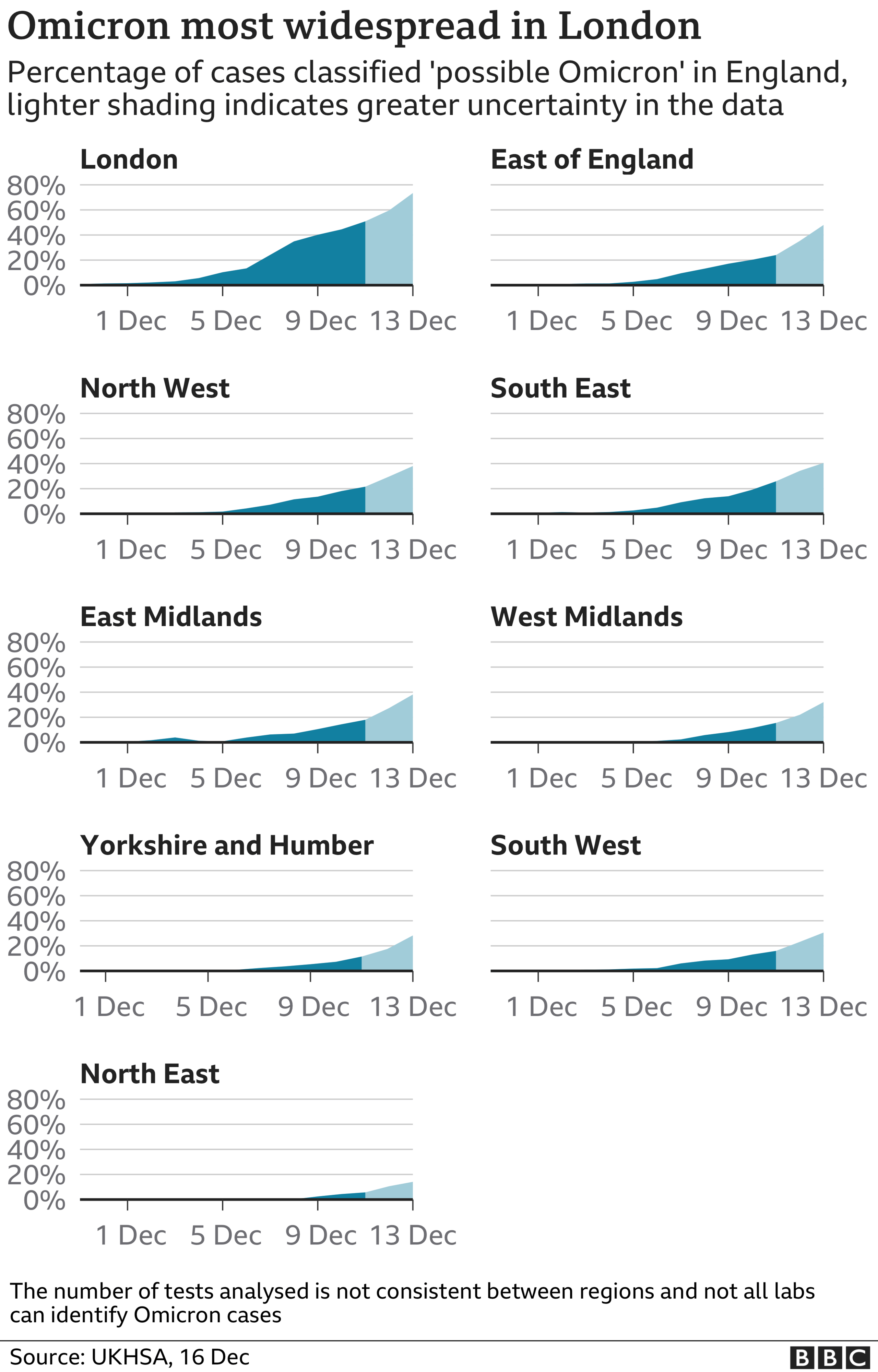

REAL WORLD ATLANTIS: Five hidden worlds just underneath the water
BUY NOW, PAY LATER: Is enough being done to protect customers from a debt crisis?

- Published16 December 2021
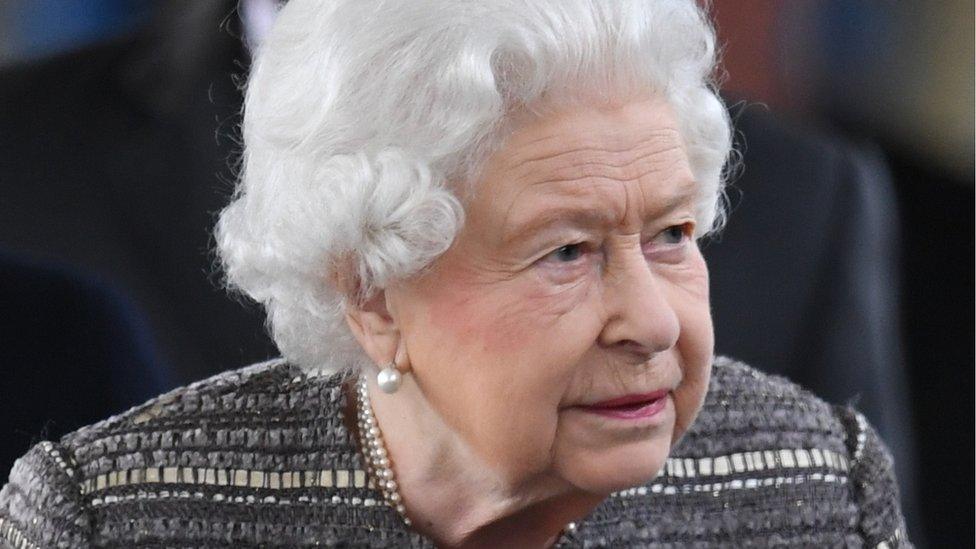
- Published25 January 2022
